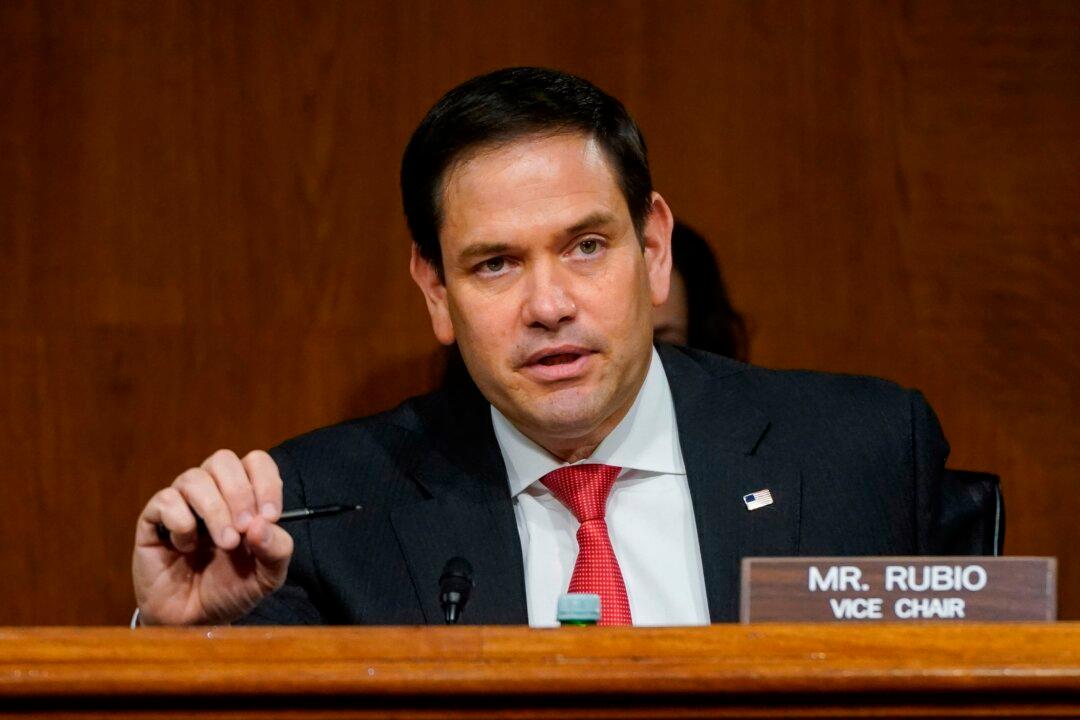Sen. Marco Rubio (R-Fla.) has expressed concern regarding the Treasury Department’s quiet updates to its sanctions related to the Chinese military.
Rubio referred to the updates, which were posted as “Frequently Asked Questions” notes, as “unacceptable” and running “directly counter to U.S. national security priorities.” He strongly urged the department to reverse its change in policy.




